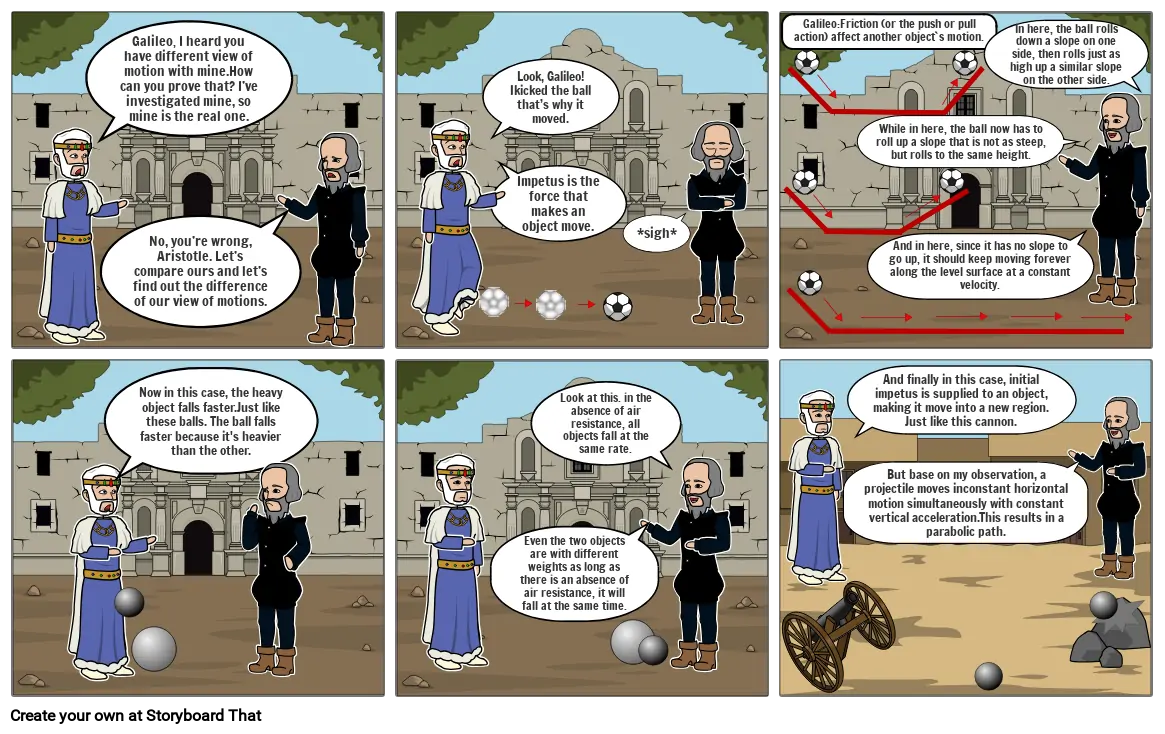uniform accelation

Storyboard Text
- Slide: 1
- Galileo, I heard you have different view of motion with mine.How can you prove that? I’ve investigated mine, so mine is the real one.
- No, you’re wrong, Aristotle. Let’s compare ours and let’s find out the difference of our view of motions.
- Slide: 2
- Look, Galileo!Ikicked the ball that’s why it moved.
- Impetus is the force that makes an object move.
- *sigh*
- Slide: 3
- Galileo:Friction (or the push or pull action) affect another object`s motion.
- In here, the ball rolls down a slope on one side, then rolls just as high up a similar slope on the other side.
- And in here, since it has no slope to go up, it should keep moving forever along the level surface at a constant velocity.
- Slide: 4
- Now in this case, the heavy object falls faster.Just like these balls. The ball falls faster because it's heavier than the other.
- Slide: 5
- Look at this. in the absence of air resistance, all objects fall at the same rate.
- Even the two objects are with different weights as long as there is an absence of air resistance, it will fall at the same time.
- Slide: 6
- And finally in this case, initial impetus is supplied to an object, making it move into a new region. Just like this cannon.
-
- Slide: 0
- While in here, the ball now has to roll up a slope that is not as steep, but rolls to the same height.
- But base on my observation, a projectile moves inconstant horizontal motion simultaneously with constant vertical acceleration.This results in a parabolic path.
Over 30 Million Storyboards Created
No Downloads, No Credit Card, and No Login Needed to Try!
